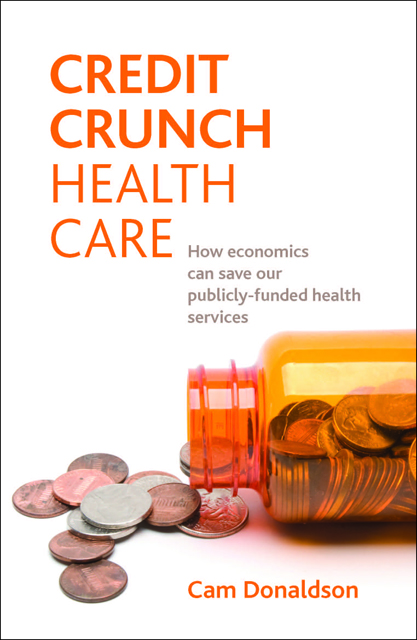Book contents
- Frontmatter
- Dedication
- Contents
- List of figures, tables and boxes
- About the author
- Acknowledgements
- Foreword
- one Introduction: the quid pro quo of health care
- two Market failure and health care
- three Charging the public: exception or anomaly?
- four Reform, privatisation and those damn doctors
- five The fiscal future of health care: an economistâs rant
- six Economic evaluation
- seven Whatâs your health worth?
- eight Conclusion
- Appendix: 'What's your health worth?' A questionnaire
- Index
three - Charging the public: exception or anomaly?
Published online by Cambridge University Press: 15 April 2023
- Frontmatter
- Dedication
- Contents
- List of figures, tables and boxes
- About the author
- Acknowledgements
- Foreword
- one Introduction: the quid pro quo of health care
- two Market failure and health care
- three Charging the public: exception or anomaly?
- four Reform, privatisation and those damn doctors
- five The fiscal future of health care: an economistâs rant
- six Economic evaluation
- seven Whatâs your health worth?
- eight Conclusion
- Appendix: 'What's your health worth?' A questionnaire
- Index
Summary
Introduction
One of the first questions a reader might ask at the end of Chapter Two is, âGiven these apparently quite sensible arguments about market failure in health care, why then do many governments still operate a system of charging people for care at the point of use?â This would indeed appear, on the face of it, to be an apparent contradiction to the points made in Chapter Two. However, such user charges are often inherited or are nominal, having been introduced by governments as a political mechanism to make it look as though those who are using (and often portrayed as âabusingâ) the system are being made to pay for it out of their own pockets as well as being subsidised by the wonderful taxpayer. Therefore, as examples, charges tend to be levied on items such as prescription drugs and visits to family doctors. Of course, it is never those wonderful taxpayers, to whom governments are trying to appeal, who are portrayed as abusing the system; it is always some other person. It is important to lay out the arguments against user charges so as to dismiss this as a way forward in getting maximum value from health care.
Every country has a different way of implementing user charges, but, as has been pointed out, a common feature is that they really do represent a minor source of revenue for health care funding (less than 10% in most countries), despite the attention they attract. The real question, then, is why not user charges? More precisely, what are the arguments against their more widespread use? Regular fiscal pressures in most countries lead to frequent debates about extending the implementation of user charges, and the health care credit crunch will be no exception. However, user charges will not save our publicly funded systems, and indeed will act to undermine them. There is much evidence to support this argument, and there is virtually unanimous agreement about it among the experts. Yet, politicians, and the occasional clinician, keep coming up with user charges as a suggested cure for health care ills. I am not sure we can stop this, but the arguments contained in this chapter might help.
- Type
- Chapter
- Information
- Credit Crunch Health CareHow Economics Can Save Our Publicly Funded Health Services, pp. 19 - 28Publisher: Bristol University PressPrint publication year: 2011



